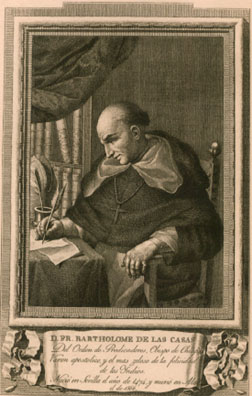Re-revising Native history
Patrick Barkman: Who ‘discovered’ the ‘New World’?An excellent recent work on this subject, and the re-revisionism of American Indian history, is 1491, by Charles C. Mann. Whereas contemporaries of Colombo, like Bartolomé de las Casas, described a land that was a “beehive of people,” the next generation of explorers found emptiness, leading to the enduring myth that North America was virgin unclaimed territory. De las Casas first came to the Americas as a conquistador himself, but was sickened by the brutality he witnessed and, repenting, entered the priesthood. His posthumous work, Apologética Historia Sumaria, was the first attempt by Europeans to write truthfully about American Indian culture. In fact, the “discovery” of the “New World” had led to a crisis in Christianity, since these lands and people were not to be found in Holy Scripture. De las Casas’ famous debate with Juan Ginés de Sepúlveda in 1550 was over the blunt issue of whether or not American Indians were human beings.
De las Casas had a somewhat romantic view, arguing that Indians were naturally innocent, living in paradise—a patronizing and offensive position, to be sure, but certainly better than de Sepúlveda’s contention that Indians were essentially animals who only looked like men, natural slaves created to serve white men and incapable of self-governance. King Charles V (grandson of Ferdinand and Isabella) was persuaded to de las Casas’ point of view; one can only imagine how things could have been worse for Indians had he gone with de Sepúlveda instead.


2 comments:
See Kennewick Man, Captain Picard, and Political Correctness for more on this subject.
For those who didn't see it, "science is never wrong" is my paraphrase of the claims of certain people. Namely, those who want to dissect rather than bury Kennewick Man's remains.
Post a Comment